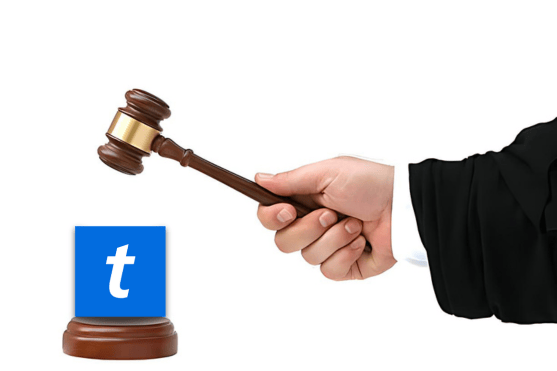Law
The DOJ is suing Live Nation

Canva
After announcing it would sue the entertainment company last month, the DOJ has finally brought down the gavel. In an attempt to dismantle the biggest concert producer and ticket seller in the nation, 30 states joined with the Department of Justice (DOJ) in filing an antitrust case against Live Nation late last week.
Live Nation, which boasts it is the “largest live entertainment company in the world,” was struck with a 120-page complaint that alleges it knowingly suppresses competition and increases the cost of ticket prices, hurting consumers along the way.
Ticketmaster now controls over 80% of the primary ticket sales market, according to the DOJ.
In addition, the conglomerate controls over 260 venues in North America along with 60% of the most popular amphitheaters in the US and manages over 400 music artists.
It started with a merger
In 2010, Live Nation merged with Ticketmaster and complied with the DOJ’s rules (at the time) that focused on protecting competition, essentially ensuring Live Nation wouldn’t force venues to use Ticketmaster to get promotion.
However, in 2019, regulators found Live Nation was doing just that, therefore violating its promise with the Justice Department. This forced the DOJ to revise its deal with the company, adding an anti-retaliation clause to the arrangement.
The antitrust lawsuit could potentially void the agreement Live Nation reached with the DOJ in 2010, and force the entertainment company to pay a $1 million penalty for each instance the department finds of it coercing venues.
Taylor Swift didn’t help…
In late 2022 the company caught criticism for mishandling presales for Swifts Eras tour, and no tickets were left for general sales.
Due to the chaotic ticket purchasing process, a group of senators from both parties gathered on Capitol Hill last year and questioned Live Nation executives about the company's procedures.
The DOJ claimed to have been looking at the company even before the Swiftie scandal.
This might take awhile: The legal process is expected to take years and the suit requests a jury trial, which will make the process all the more time consuming.
The NCAA paves the way to pay athletes for the first time

AI-Generated Image via Bing Image Creator
In a landmark case, the NCAA has reversed its decision on paying athletes. Players will now be paid directly by their colleges as a result of a $2.8 billion class-action settlement reached last week between the National Collegiate Athletic Association and five power conferences.
For over a century, the NCAA has said college athletes are amateurs, not professionals, and therefore shouldn’t be paid to play. The plan could go into effect as soon as 2025, and reverse the longstanding model used by the association since 1905.
Here’s how it will work
The settlement is derived from a 2020 class-action suit against the NCAA from former players, which might have changed how athletes are paid forever:
The NCAA, the Big Ten, Pac-12, Southeastern, and Atlantic Coast Conferences agreed to award $2.77 billion in back pay over a decade to around 14,000 active and past players who claimed they weren’t able to earn money because of the association's brand deal restrictions, which were lifted three years ago.
The second aspect of the deal suggests, but does not require, that universities pay student-athletes up to $21 million, or 22% of their average yearly athletic department earnings. A portion of the proceeds from sponsorships, television rights, and ticket sales would be allocated to players by the schools.
The offer is eligible to anyone who played a Division I sport since 2016, although most of the money will likely fall to the school’s biggest money makers, like football and basketball.
The NCAA is paying for 41% of the money going to players, which it can use its savings and incoming revenue to cover. But, it also won’t be sending as much money to the schools… which doesn’t make them very happy.
Schools that aren’t members of giant power conferences are understandably concerned about the incoming lack of funding, as many of them rely on it.
Going forward: As the NCAA embraces the revenue-sharing model, many athletic-focused universities will most likely have to pay athletes in order to stay competitive, turning a new page in collegiate sports for a long time to come.
Food & Drink
The beer industry is trying something different

High Style
What makes alcohol more exciting? Weed, of course. The cannabis industry has dominated in the past few years, thanks to increasing legalization and demand. But the beer industry is saying “if you can’t beat them, join them,” as its market share gets smoked (literally and figuratively).
Canned drinks infused with THC have become so popular that even mainstream media outlets are reviewing them. Since the THC is derived from hemp, its allowed to be taken across state line since it adheres to federal laws.
This made the beer industry happy
The crack in legal code was found within the 2018 Farm Bill, which planned to allow hemp to be grown to make items like clothing and car parts, but it ended up facilitating the boom in cannabis drinks. ‘Merica.
New York banned drinks with more than 1 milligram of THC per serving last summer, and now other states like Connecticut, Louisiana, and Illinois are following in its footsteps. In a bid to render the drinks illegal, twenty additional states have proposed that the Farm Bill should be reviewed.
Beer or bust… By 2027, beer sales are expected to drop to 33% of the US alcoholic beverage market from 45% in 2017, according to Bloomberg Intelligence.
Earn Free Gifts 🎁
You can get free stuff just by referring friends and family to our newsletter. Sweet deal right?
1 referral - NextGen News digital badge ✅
5 referrals - $5 gift card 💳
10 referrals - Luxury satin pillowcase 🛏
20 referrals - Carhartt beanie (of your choice) 🤠
{{rp_personalized_text}}
Copy and paste this link to share: {{rp_refer_url}}
Grab Bag
Want to look at Mount Fuji? Too bad.

Kazuhiro Nogi / AFP via Getty Images
The beautiful Mount Fuji is a paramount sightseeing destination when in Japan. If it isn’t blocked by a mesh fence. A convenience store with the renowned mountain in the background now stands across the street of an 8-foot-tall, 65-foot-long mesh barrier placed by the town of Fujikawaguchiko.
Mount Fuji itself is seeing skyrocketing tourism, much of which Japan is trying to limit. Local authorities are restricting how many people can climb the landmark a day, and charging a fee to those who want to ascend as the country deals with record tourists.
More visitors, more problems
Part of the sudden allure to the land of the rising sun is the country’s meager currency, the Japanese Yen, which lost almost 12% of its value against the dollar over the past year.
The Japan National Tourism Organization (JNTO) estimates that 32 million foreign visitors would travel to Japan this year, up from 25 million in 2023.
The organization claims that vacation stays have increased, and Bloomberg notes that because prices are so low, people are spending more money.
Despite the cheap currency, tourists spent over $11.2 billion in Japan during Q1, up 52% from 2019, per the JNTO.
Spotify is evolving its font

Spotify
Out with the old, in with the new. Spotify is hoping a new, all original typeface that “reflects the vibrancy and creativity of our community,” will “mirror the dynamic and evolving nature of audio culture over the years.” I say they go to Times New Roman.
The company’s last font, Circular, wasn’t created for them and hope the new one will help the brands products and marketing stick out more than Circular did.
Join the club
Unlike when it used Circular, Spotify won't have to pay yearly licensing fees because it will be using a custom typeface that it own. Now, they can join the exclusive gang of brands that made their own font:
According to Mashable, a number of unique typefaces were created in the 2010s by tech companies looking to stick out from the rest of the pack. These include Samsung One, Roboto for Android, Product Sans for Google, San Francisco for Apple, and YouTube Sans.
This is something I didn’t know but I quite enjoy. A lot of brands added weird typefaces to add to their identity, but these ones stood out to me: Popeyes's Chicken Sans, Burger King's Flame, Twitter/X's Chirp, Netflix Sans, Airbnb Cereal, and Uber Move.
Creative collab: Screen resolution improvements have made it possible for digital designers to produce typefaces that are more artistic and refined. Dinamo Typefaces, which assisted Spotify in its new font endevour, has collaborated with major players such as Burberry, Nike, Patreon, Tumblr, Discord, and others.
Fast Facts

GIF via GIPHY
Rodent Removal: New York City Mayor Eric Adams announced that the city will host the first national Rat Summit in September, gathering experts from across the US to share best practices on how to get rid of the city’s rodent problem.
News Networking: OpenAI made a content licensing deal with News Corp. valued at $250 million to use the news publisher’s content to improve ChatGPT.
Chuck E. Creep: By the end of the year, Chuck E. Cheese will retire the animatronic animal band at all but two of its locations. Some won’t have to say goodbye, as the robot rat still lingers in their nightmares. No, I’m not talking about myself.
Digital Doze: This is why screens affect your sleep.
Weight Watchers 2.0: Nestle is launching a new frozen-food brand marketed toward Ozempic and Wegovy users.





